Word 2013 Complete Guide (Part 14): Page title, footer and page numbering
- Word 2013 Complete Tutorial (Part 9): Use Line and Paragraph Spacing
- Word 2013 Complete Guide (Part 10): Bullets, Numbering, Multilevel list in Microsoft Word
- Word 2013 Complete Guide (Part 11): How to create hyperlink links
The page title ( Header ) is the section displayed in the upper margin, while the footer is the part displayed in the lower margin of the text. Typically, page and footer titles often contain additional information such as page numbers, dates, author names and comments, which helps provide more detailed information about the text. The content displayed in the page title or footer will appear on every page in the document text.
Please refer to the video How to create page title, footer and page numbering in Word 2013 below:
How to create a page title or footer:
In the example below, we want to display the author's name at the top of each page, so we'll name it on the page title.
1. Double click anywhere in the upper or lower margin of the text. In the example, we will double click on the upper margin.

2. The page title or footer will open, the Design tab will appear on the right of the Ribbon . The insertion point will appear inside the page title or footer.

3. Type the information to add to the page title or footer. In the example below, we type the author's name.
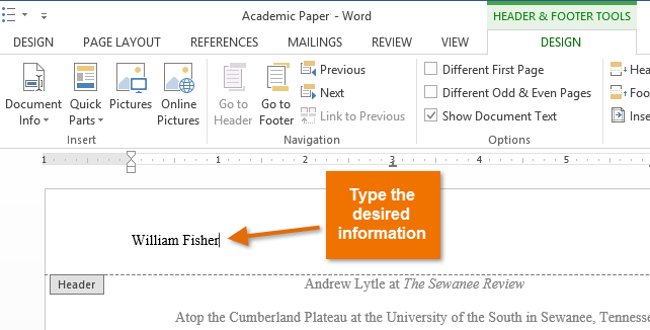
4. After completing, select Close Header and Footer or press the Esc key on the keyboard.
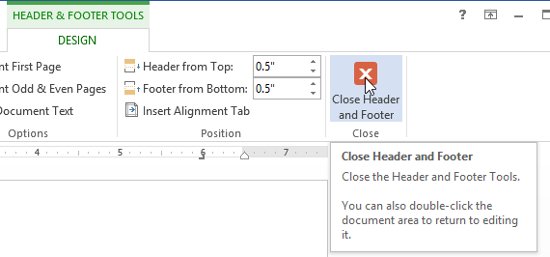
5. The title or footer will appear in the text.

How to insert an existing title or footer
Word 2013 has many available page and footer titles that you can use to make your document look more beautiful. Below, we add the available page title to the text.
1. Select the Insert tab and click the Header or Footer command. In this example, we will click on the Header command.

2. In the menu that appears, select the available title or footer. The example below, we select a page title.

3. The title or footer will appear later. The available headers and footers contain text typing fields called Content Control . These fields are very useful for adding information such as text titles, author names, dates, and page numbers.

4. To edit the content in the Content Control field, click on it and enter the desired information.
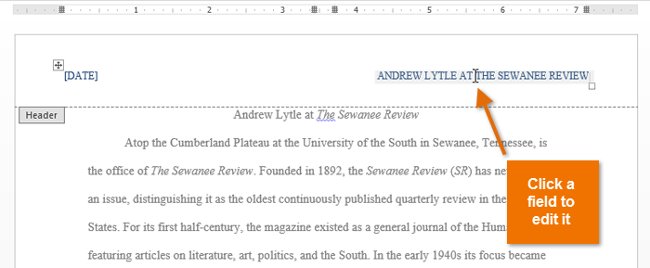
5. When finished, click Close Header and Footer or press the Esc key.
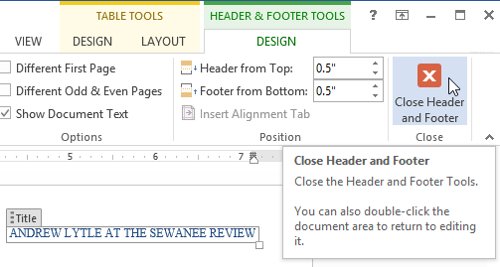
- If you want to delete Content Control , right-click and select Remove Content Control from the list that appears later.
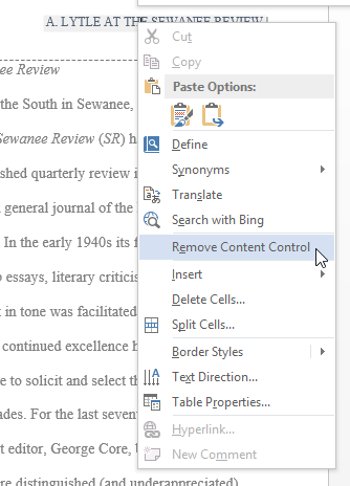
How to edit the title and footer
After closing the title or footer, it will still display but is locked. Simply double click on the page title or footer to unlock it, it will allow you to edit.
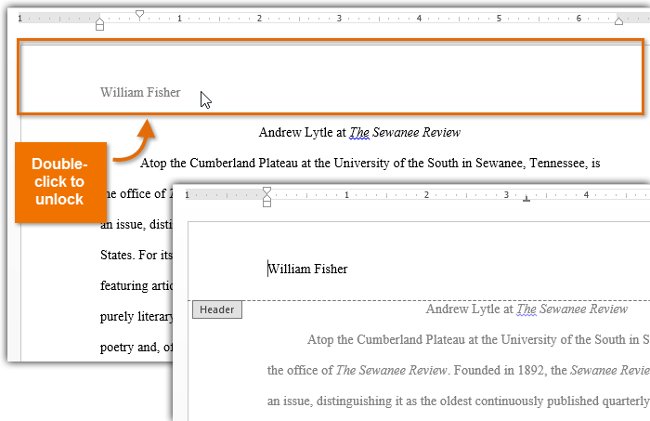
Options Design tab
When the page title and footer of the document are unlocked, the Design tab appears on the right side of the Ribbon, giving you various editing options:
- Hide the title or footer of the first page : For some texts, you may not want to leave the title and footer on the first page, for example, when you want to order numbers from the second page or want to use it as a cover for example. To hide the title or footer in the first page, click the Different First Page box.
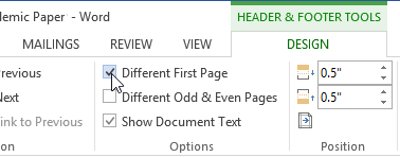
- Remove title : When you want to delete all the information contained in the page title, click on the Header command and select Remove Header in the list that appears.
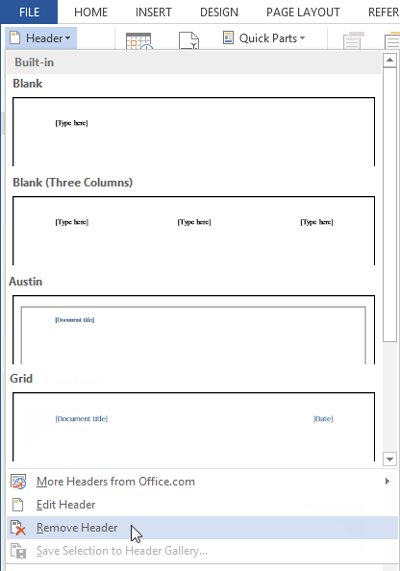
- Footer deletion : If you want to remove all the information available at the footer, click the Footer command and select Remove Footer from the drop-down menu.
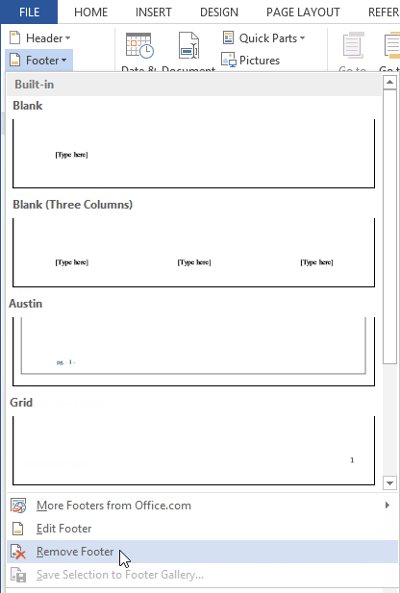
- Additional options : With the Page Number command and the commands available in the Insert group, you can add page numbers, dates, images and more to the title or footer.

How to insert a date, time into the title or footer
Sometimes it is also helpful to add time to display the text title or footer. For example, you want to display the document creation date.
On the other hand, you may want to display the printed date, which you can do by setting them to automatically update the date. This is useful if you regularly update and print a document so that it is easy to know the latest text.
1. Double-click the title or footer to unlock it. Place the mouse pointer on the desired position to date and time. In the example below, we put the insertion point below the author's name.
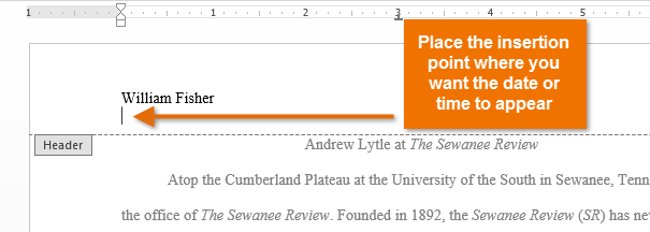
2. The Design tab will appear. Click on the Date & Time command .

3. The Date & Time dialog box will appear. Select the desired date or time format.
4. Check the box next to Update Automatically if you want to change the date each time you open the document. If you do not want to change, uncheck this option.
5. Click OK .
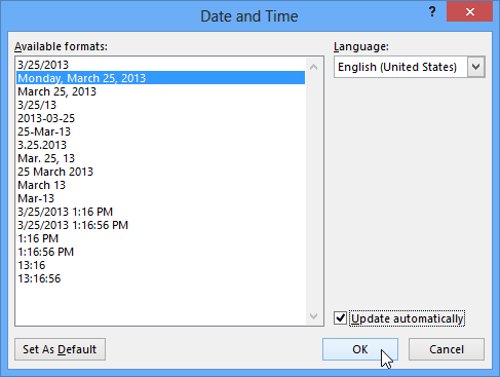
6. The date will appear in the page title.
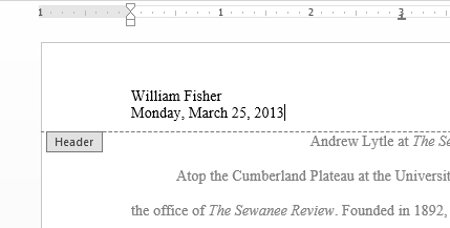
Page
Page Numbers is a feature that allows for the number of Word text pages with a wide selection of digital formats and customizations. The page number is usually placed in the page title, footer or side margin. When you need to number a few different pages, Word also allows you to type back the page numbers from the beginning.
How to add page numbers to text
Word can automatically page numbers and set the page title, footer or side margin. If you have already created the page title or footer, they will be dropped and replaced with the newly created page number.
In the example below, we will add the page number to the footer of the document.
1. Double click anywhere on the title or footer to unlock it. If there is no header or footer, you can double-click near the top or bottom of the page. The Design tab appears on the right side of the Ribbon.
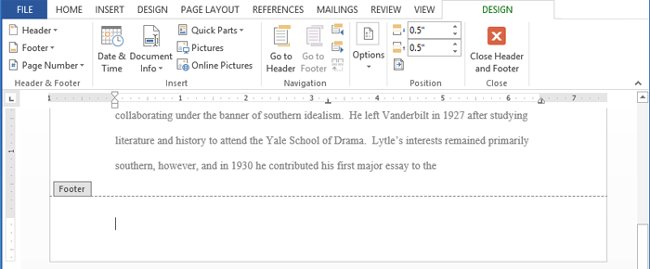
2. Click the Page Number command. In the menu that appears, hover over Current Position and select the desired page numbering type.
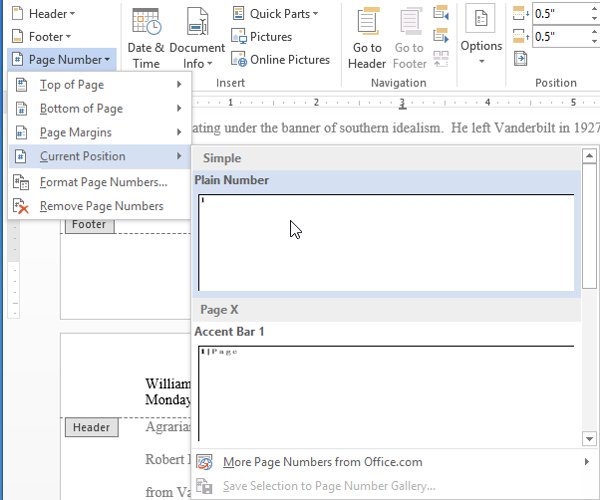
3. The page number will appear in the text.
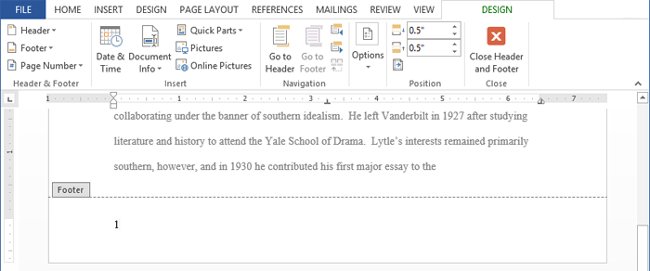
4. To edit fonts, font sizes, and how to arrange page numbers, select some pages and click the Home tab. Word's text formatting options will appear.

5. When finished, press the Esc key. The page number will be formatted.

- Alternatively, you can add page numbers to the title or footer by clicking on the Page Number command and then selecting Top of Page ( top of the text ) or Bottom of Page ( bottom of the text ). If you have an existing title or footer, it will be removed and replaced with the page number.
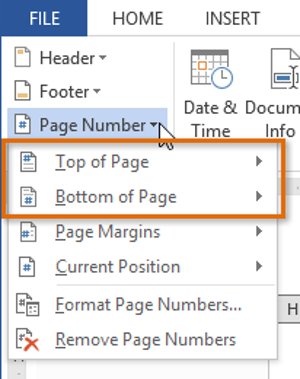
Number revisions for text pages
Word allows users to re-number pages from any page of the document by creating aSection Break and numbering pages from a specific number. In the example below, we will restart the page numbering for the document's Works Cited section.
1. Place the insertion point at the top of the page where you want to restart the page number. If there is text on the page, place the insertion point at the beginning of the paragraph.
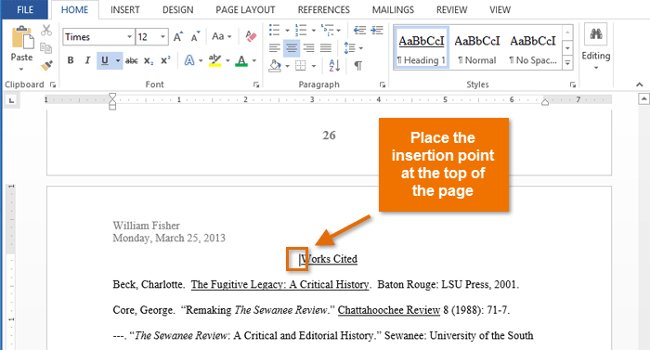
2. Select the Page Layout tab, then click the Breaks command. Select Next Page from the drop down menu.
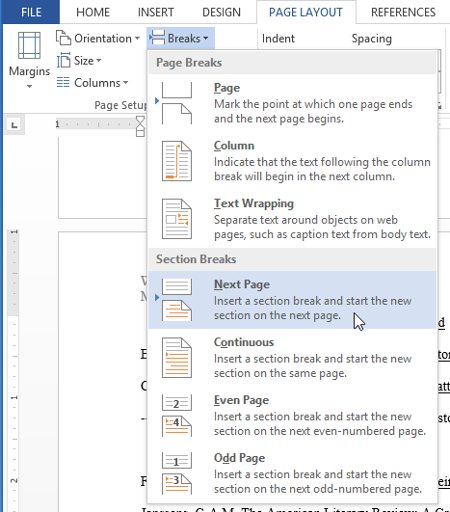
3. A paragraph break will be added to the document.
4. Double-click the title or footer that contains the page number you want to change.

5. Click the Page Number command. In the menu that appears, select Format Page Numbers .
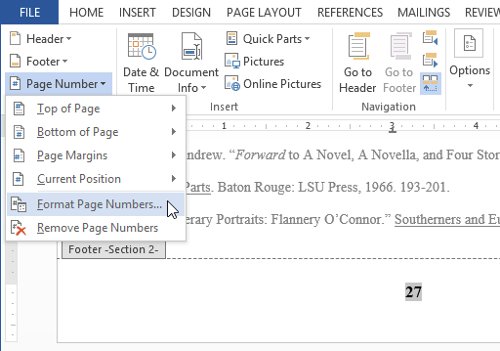
6. In the dialog that appears, select Start at . This is the first number that you will type in the order for the page, the default is selected as 1. If desired, you can change, for example, typing the order.
7. Click OK.
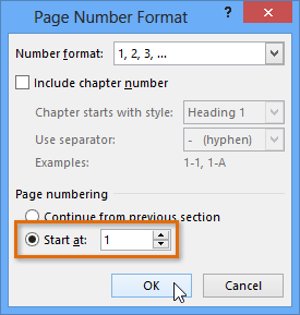
8. The page numbering will be restarted.

To learn more about adding section breaks to a document, visit the article Word 2013 Complete Guide (Part 12): How to break our pages and interrupts.
Having fun!
You should read it
- ★ How to number pages in Word 2007
- ★ How to type pages in Word 2010
- ★ Number pages in Word 2003, insert special characters, date and time into Word
- ★ How to page numbering and create Header, Footer in odd and even pages in Word 2007 and 2010
- ★ Microsoft Word: How to create page title (Header) and footer (Footer)